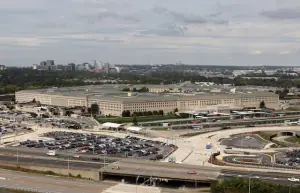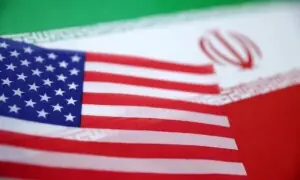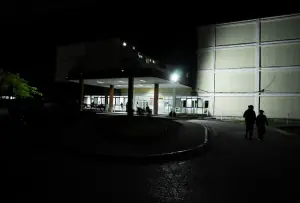HagiaSophia: should it be a mosque? a historical and Islamic perspective
6 min read “A place of worship - whether it be a Church or a mosque - should remain a place of worship, converting it into a museum kills its soul.”
I remember reading this sentence by Mustansar Hussain Tarar in his travel-log to Turkey and crying at the fate of Hagia Sophiya; a pagan temple, the Church of Constantius II, the Church of Theodosius II, the Basilica of the Hagia Sophia, the Mosque and the museum.
The recent decision by Erdogan to convert Hagia Sophia back into the mosque has brought back these memories of dread and heartache I felt at the fate of this architectural marvel while reading about it as a child. I can’t deny, there is a sense of relief and happiness while I imagine Azan being called out of Sophia once again but there is also a sense of guilt and shame at what a historical and un-Islamic move it was to convert a holy place for the conquered Christians into a place of worship for Muslims.
This history of Hagia Sophia began as a pagan temple dedicated to the Greek goddess Aphrodite. There still are some symbols and structures present in the building that are pagan in nature. For instance, the symbol of trident and the dolphins in the picture below are related to the God Neptune (or Poseidon in Greek) and are part of Hagia Sophia.

The first church on the site was inaugurated in 360 and was known as Magna Ecclesia or the Church of Constantius II. After this church was burnt completely to the ground, a second church was built by Theodosius II in 415. However, it was again burnt completely to the ground in 532.
A third attempt was made by Emperor Justinian I in 532, a few weeks after the destruction of the second structure. Justinian didn't spare any expense and put geometer and engineer Isidore and mathematician Anthemius as in charge of the construction to materialize this architectural marvel we know today as Hagia Sophia.

Hagia Sophia remained a church for nearly 900 years and in 1453 after Sultan Mehmet conquered Constantinople he ordered to convert it into a mosque. Hagia Sophia enjoyed the status of a mosque for 400 years when in 1935 it was converted into a museum after the Ottoman Empire was ended and Ataturk took charge of the Republic of Turkey.
With this latest development to change back the status of Hagia Sophia into a mosque, a debate has been stirred if the decision is fair and in accordance with the Islamic traditions with many arguing that the conversion of the church into a mosque right after the conquest was un-Islamic. While others argue that the church was legally bought by Mehmet and thus, he had every right to convert it into a mosque.
The answer to these arguments has been provided by Islam through the Quran, Hadith, and examples set by Prophet Muhammad (SAW) and his compaignions.
The right to worship and belief were amongst the top rights of minorities and conquered, according to the Quran.
In the Quran, Allah says:
“Let there be no compulsion in religion, truth stands out clear from error.” (Al Quran 2/256)
Islam also recognized the importance of long-lasting harmony between people of different religions. When the foundations of the first Muslim state were laid in Madina, Prophet Muhammad (SAW) in detailed explained the rights of non-Muslims which entailed them the right of religious freedom.
Same religious freedom was given to the Christians from Najran when a pact was made between the Najrani delegate and Prophet Muhammad (SAW):
"Najran and life of the people in its surroundings, their religion, their lands, their property, their caravans, their messengers are under the safety/guarantee of the prophet of Allah. No change will be caused to their present condition neither their rights will be restrained, no Rabi will be removed from his position, everything in their possession will remain with them, justice will be made in their demand for rights. Neither they will be asked for military service nor they will be allowed to act as cruel neither they will be made to undergo any injustice or cruelty.”
(Ibn-i-Hisham: 1995, Ibn-i-Kaseer: 1984)
During the caliphate of Abu Bakar Siddique, after the conquest of Heerah, Khalid bin Waleed wrote in the agreement
“Their churches and seminaries will not be demolished neither they will be stopped from their individual rituals like blowing the horns etc.”
(Bilazuri: 1983)
Similar agreements were made with the people of Syria and Damascus on behalf of the Islamic Caliphate.
During the caliphate of Hazrat Umar, the conqueror of Syria, Hazrat Abu Ubaida guaranteed the protection of places of worship:
“Abu Ubaida assures them that when he enters Syria as a conqueror, their churches and seminaries will be safe.”
(Yousuf: 1332)
In a similar treaty, Hazrat Umar bin Khitab assured protection to the people of Jerusalem:
"In the name of Allah, this is the surety for the people of Jerusalem rendered by AmeerulMomneen Umar. It ensures the safety of their life, honor, cross, synagogues, and property, all their population whether they are ill are healthy will be included in this surety. Their synagogues will not be made residential places neither they will be destroyed. All these places will be protected as their property. In the matters pertaining to religion, they will not be pressurized, neither they will be tortured.”
(Tabari: 1987)
In the light of these examples set by the Quran, the life of the Prophet and his close companions, it's safe to say that conversion of a place of Christian worship into a mosque was un-Islamic and was only done so to solidify Mehmet's victory.
There are people who argue that the land, Hagia Sophia, was built on was legally obtained by Mehmet and the building wasn't forcibly converted into a mosque. The argument that the building was owned by Mehmet foundation has also been the basis of the ruling of the Turkish court for the re-conversion of this architectural gem into a mosque. The ruling was based on a charter signed by the Sultan:
“All the things I have explained and designated here have been set down in written form in the foundation charter in the manner appointed; the conditions may not be altered; the laws may not be amended; they may not be diverted from their original purpose; the appointed rules and principles may not be diminished; interference of any sort in the foundation is interdicted… May the curse of Allah, the angels and all human beings be upon anyone who changes even one of the conditions governing this foundation.”
However, the claim has been disputed historically with some historians saying that the Sultan only spent money on the reconstruction and re-modeling of the church into the mosque.

Even if the church was legally purchased by the Sultan to be converted into a mosque, it raises some important questions about why he choose to convert this historical monument, thus hurting sentiments of thousands of Christians? Also, it seems quite unethical and unIslamic to purchase a holy place to convert it in a mosque, especially when we take into account, the power dynamics of a conqueror and those conquered. The protection of religious places of minorities in an Islamic state was a gesture and assurance of their religious freedom, purchasing their historical monuments and convert them into mosques takes away that assurance.
Given its pluralist history and Islamic values, Hagia Sophia should stay open for everyone, without any labels plastered to it. It should remain open to Christians to say their prayer and it should stay open to Muslims to offer Namaz. There can be no better fate for a place claimed by many - in the name of God.
























Comments are closed on this story.